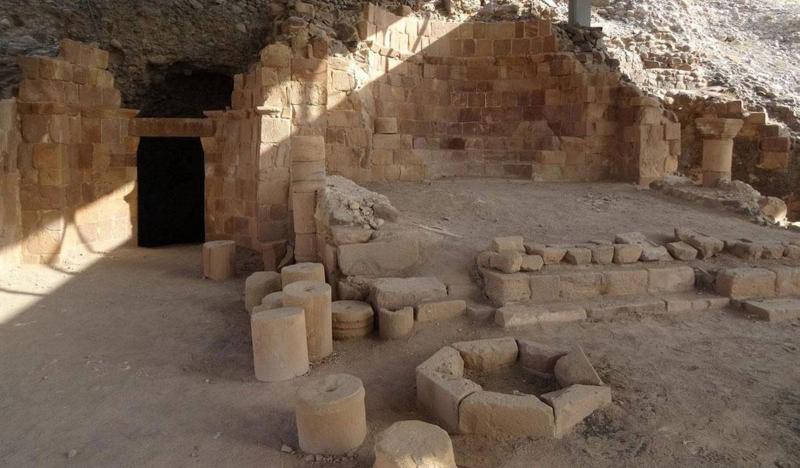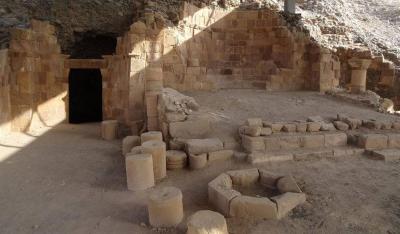Jordanian experts announced on Friday the completion of the discovery of Prophet Lot's dwellings in the Southern Ghor region of southern Jordan, according to the official Petra news agency. The president of the Jordanian Tourist Guides Association, Mohammed Hamad, emphasized the importance of announcing these scientific discoveries, particularly the finding of Lot's dwellings, which he considers one of the most significant discoveries in the second centenary of the Jordanian state.
Ghassan Owais, a member of the Tourist Guides Association, stated, "We now have a new global tourist destination in the Southern Ghor, based on solid and robust scientific evidence, and it is time to benefit from it in various fields." Mohammed Wahib from Al-Hussein University presented what he described as "tangible scientific evidence for the discovery of Lot's dwellings, including astronomical, geological, and geographical evidence, archaeological excavation results, field surveys, and trade routes associated with the area such as the International Incense Road, the Quraysh League Road, the discovered tablets in Babylon, the Ebla tablets, the Akkadian tablets, and subsequent Roman roads." He remarked that "the kingdom is facing a global discovery."
Mamdouh Abdulaziz, an anthropology professor at Al-Bayt University and a member of the discovery team, noted that "field studies, scientific comparisons, and patterns of settlement in the area have been comprehensively reviewed, confirming the validity of this discovery beyond doubt, with anthropological evidence supporting the archaeological research results."
Dr. Mohammed Al-Hweimel, a professor of heritage, literature, and history and a member of the research team, stated that collective efforts have resulted in the discovery of Lot's dwellings, pointing out that the study team has recently completed documentation of oral heritage in the study area, thus finalizing the chapters of the discovery of Lot's dwellings, considering the intangible heritage from traditions passed down in the area since the incident that destroyed those villages and cities.
Tourism expert and team member Dr. Jumana Al-Dweikat pointed out that the field studies she conducted with the team, especially in the realm of religious tourism, confirmed the reality of the discovery, given that the area served as a hub for caravan routes in the ancient world, evidenced by the presence of massive burial remains scattered in Al-Naqa, Al-Dhahra, and Wadi Feifa, exceeding tens of thousands in number.
Dr. Mahdi Al-'Ilmi, a member of the Jordanian Writers Union, discussed the economic and social benefits of the discovery and its potential impact on the development of the Southern Ghor's economy, creating job opportunities, and initiating necessary development, citing similar successful examples and the capability of Jordanian national capacities to continue the journey positively and progressively towards prosperity.
Ghassan Owais, a member of the Tourist Guides Association, reiterated that "we now possess a new global tourist destination in the Southern Ghor based on solid and robust scientific evidence, and it is time to benefit from it in various fields." A discussion and dialogue took place at the end of the workshop between the team of Jordanian experts and the attendees regarding the future of the discovery, its global promotion, and its positive implications for the local community in the Southern Ghor.




